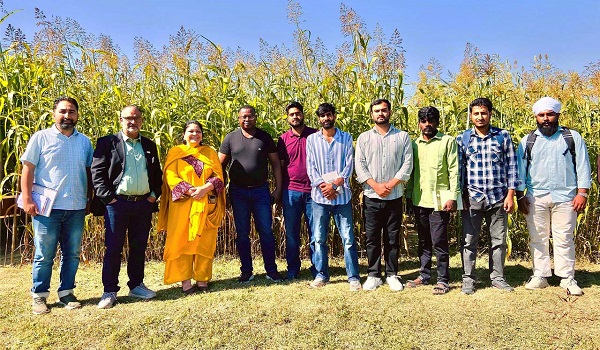In a groundbreaking development, Jammu and Kashmir will release its first cold-tolerant forage sorghum varieties by 2025, successfully adapting this traditionally dryland crop to the region’s temperate climate. This milestone comes after extensive on-farm trials conducted by the International Crops Research Institute for the Semi-Arid Tropics (ICRISAT) in collaboration with the Sher-e-Kashmir University of Agricultural Sciences and Technology (SKUAST), Kashmir.
The joint effort aims to boost food, feed, and fodder security by introducing dual-purpose sorghum varieties that provide both grain and forage. This initiative addresses the region’s 40% fodder deficit, a major challenge for the local animal husbandry sector, which is essential for protein supply and employment in the Kashmir Valley.
Dr. Stanford Blade, deputy director general-research at ICRISAT, underscored the importance of this project, stating, “This initiative reflects ICRISAT’s commitment to delivering demand-driven innovations. Partnering with SKUAST has allowed us to co-develop sustainable solutions that benefit smallholder farmers and the broader agricultural sector.”
Fodder sorghum has shown promising results, offering high biomass yields of up to 50 tons per hectare, adaptability to local conditions, and excellent nutritional value. These benefits are expected to improve livestock productivity, enhancing the rural economy and supporting smallholder farmers and landless labourers dependent on animal husbandry.
Professor Nazir A Ganai, vice chancellor of SKUAST Kashmir, commented, “This marks a significant step toward achieving feed, fodder, and livelihood security, especially for underprivileged tribal communities in high-altitude areas.”
The project’s success involved a comprehensive multi-environment evaluation program, identifying sorghum genotypes with high yields, superior nutritional quality, and cold tolerance through two cropping cycles. Dr. Ephrem Habyarimana, principal scientist – Sorghum Breeding, highlighted, “Developing elite sorghum lines tailored to Kashmir’s high-altitude ecologies is a remarkable achievement that will further inform our efforts to extend the cultivation north of 40° latitude.”


